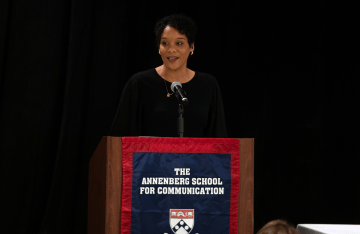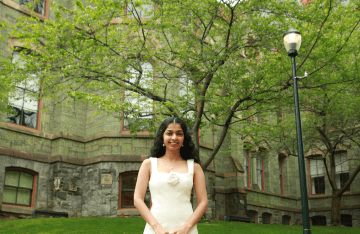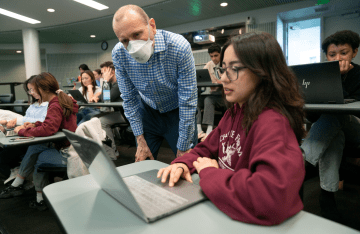Comm Majors Write Communications Plans for Cities Across America
Each student addressed a particular problem in a particular city and submitted their plan to the city’s leadership.
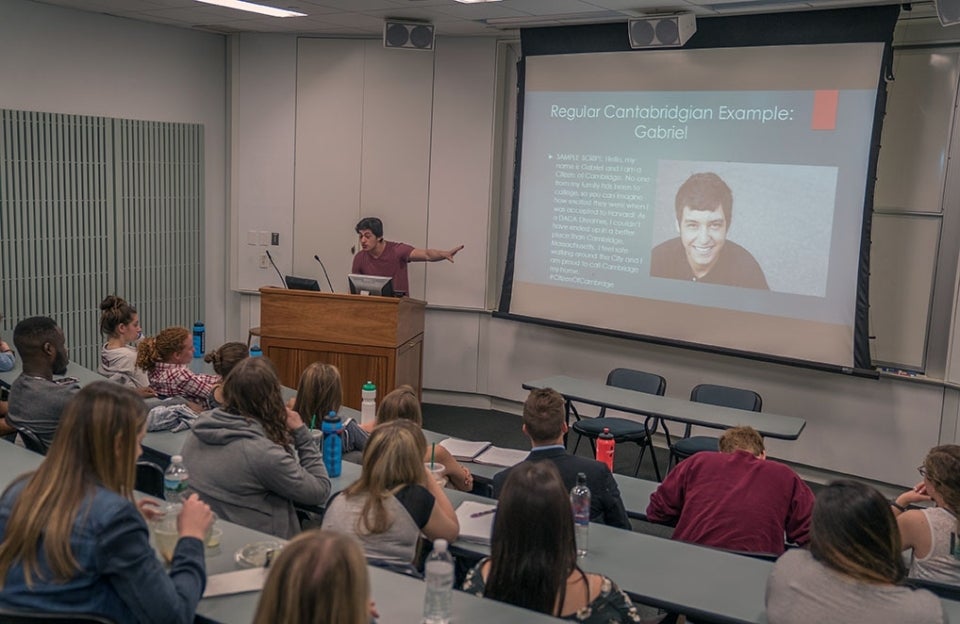
Imagine you’re the spokesperson for a major U.S. city. What would you do if the mayor’s house was raided by the FBI? Or if your city was hit by a tornado? Or if a white police officer shot an unarmed black man?
The undergraduate students in COMM 209: Urban Communication have spent this semester studying exactly those kinds of communication challenges. For Lecturer Desiree Peterkin Bell, who is President and CEO of her own boutique public affairs firm, teaching her students to be able to address real world problems is what it’s all about.
“My goal is to properly equip my students with the resources and the connections so they can get out in the real world and not miss a beat,” Peterkin Bell says. “In order to succeed, they have to be able to connect theory and practice.”
Which is why the students’ final project was to create a communications plan that addresses a particular problem in a particular city, with the end goal of submitting the completed plan to the city’s communications leadership.
Each student selected an issue and a city that interested them, and they were all required to get in touch with important stakeholders in their cities of choice. Lucky for them, Peterkin Bell’s experience working with Mayor Michael Bloomberg in New York City, Mayor Cory Booker in Newark, N.J., and Mayor Michael Nutter in Philadelphia, as well as her work with Obama for America, has given her a plethora of contacts in cities across the country.
The communications plans had to identify important stakeholders, define communication goals, develop recommendations for various types of media and events, and list ways for measuring the results. In addition to creating the plan, each student was required to present their plan to the class in April.

Ben Friedman (C’19) chose to tackle the topic of immigration in his hometown of Cambridge, M.A. One of the recommendations in his communications plan was for a social media campaign in which immigrants would share their stories in short video clips. Friedman filmed a mock video in which he shared his mother’s story of immigrating to Cambridge from Puerto Rico.
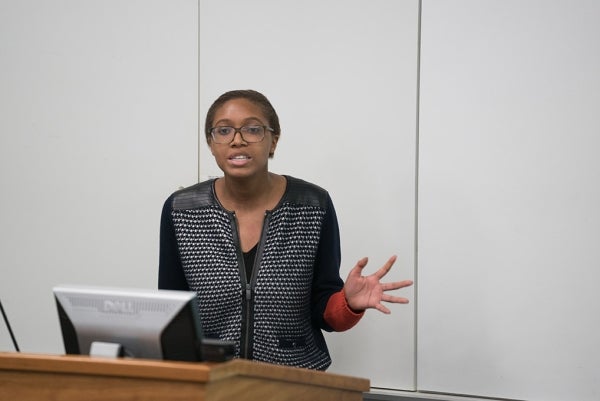
In light of potential school closings in Detroit, Meredith Mitchell (C’19) saw a need to facilitate better communication between parents, teachers, and school district officials. She recommended a much-needed redesign to the school district’s website as well as offering community events that would allow for two-way discussions between parents and the people making decisions about the future of schools.
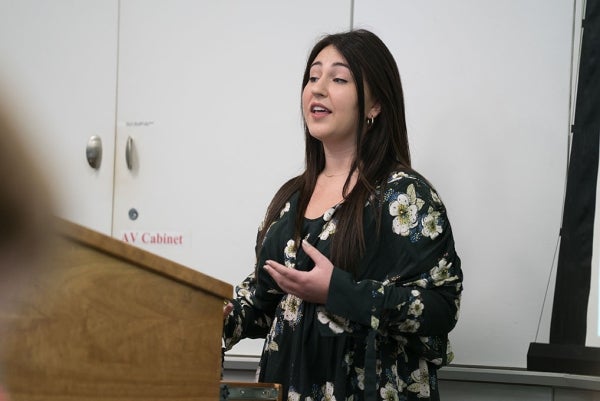
Because of a shooting at a nightclub in 2016, mental health has surfaced as an important issue for the city of Orlando. Sari Panzer (C’19) chose to focus on communicating both the importance of seeking mental health assistance and where Orlando citizens could access mental health services. Her plan centered around a large event that would receive news coverage from both local and national outlets.
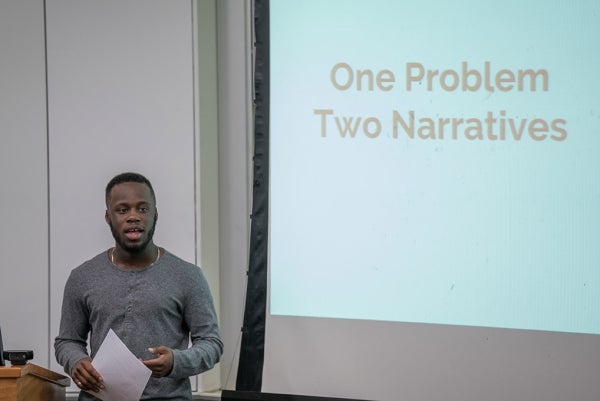
Ajibola Bodunrin (C’20) focused on the issue of homelessness in Houston. His plan involved a season-long series of events aimed at increasing awareness of services available for the homeless population. He noted the importance of including representatives of the homeless and formerly homeless populations in the planning process.
Other students are dealing with issues like gentrification in Brooklyn, the water crisis in Flint, M.I., and housing and urban development in New York City.
In addition to submitting the students’ communications plans to their respective cities, Peterkin Bell is creating a website where all the plans will be available for viewing by the public. She believes it is important to showcase student work.
“I’ve been really proud of my students,” she says. “They wanted to challenge themselves with this project, and they’re doing some groundbreaking work.”

